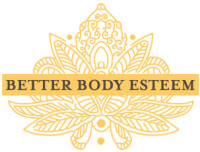
“No matter how far down the recovery journey you are, you can see glimpses of the other side, and that’s where the truly ‘sweet’ experiences can be found.”
Your eating disorder can be seen as something you’ve had to endure, cope with, get through, or recover from, but can it also be something positive? I’ve heard many people express gratitude for having had an eating disorder. They say they would have never been in therapy otherwise, and it was in therapy where they got to know and like themselves, and improve their relationships, including with themselves.
How ideal that at this time of year when we’re typically focused on gratitude, that we can try to frame even challenging things this way. Instead of “why me?” we can say “thank you!”
We’ve been discussing how having an eating disorder becomes part of your identity, and how to move on from that. Once you do, a lot of self-discovery takes place, including rediscovering things that have always been part of you – things that would have remained hidden if not for the recovery process..
Although no one wishes for anyone to be hospitalized or to need residential treatment, there can be a silver lining to that level of intervention for people who’ve been trying to fight this alone. By opening up to help from others, you’re also learning how to open up to people in other areas of your life. This is an important tool for getting the support you need both during and after recovery.
Because they’ve had an eating disorder and been through therapy, clients have told me they can now:
- Enjoy reading books – they weren’t able to focus on them before.
- Have meaningful friendships and romantic relationships.
- Hold down a job and be successful there.
- Complete a degree or training program.
- Rediscover a dormant talent or characteristic that has come alive in recovery.
- Express their creativity through art, jewelry making, music, etc.
An eating disorder can serve many functions in your life, and that’s part of what is uncovered in the counseling process. The eating disorder is a symptom of a deeper problem. In psychology terms we call this a coping mechanism or an adaptive function.
Here are some of the ways that eating disorder behaviors help you cope with difficult situations and feelings in your life:
- They can give you a way to numb out and not deal with problems
- They can relieve boredom
- They can provide a buffer in relationships because you’re focused on your relationship with food
- They can mask loneliness and other challenging emotions
- They let you hide from taking responsibility
- They mask fear about different life challenges by focusing instead on eating and exercise
No one is handed a guidebook for how to navigate through life without using some kind of buffer. Counseling is one way to learn how to do this, but without an eating disorder or some other mental health concern, someone likely won’t find their way to counseling. For those in recovery from an eating disorder, working with a counselor can give you vital tools for communicating with other people, insight into your own passions and interests, and action steps for how to find or advance a career.
These are all things that an eating disorder can block. Recovery releases you from these limits and brings you back into the present moment to enjoy life with all its ups and downs. Instead of running from problems, you learn to work through them and experience the sense of accomplishment that comes from facing things rather than avoiding them. You gain a sense of self-appreciation, even with all your human flaws, instead of self-loathing from expecting yourself to be perfect.
No matter how far down the recovery journey you are, you can see glimpses of the other side, and that’s where the truly “sweet” experiences can be found. Counseling is such a great opportunity to talk about yourself and see that positive change and growth and this is so very rewarding.
So at this holiday time of year, can you find gratitude for having had an eating disorder? This isn’t something you have to do, but the gift you’ll receive if you focus on your gratitude is it will make you happier.
